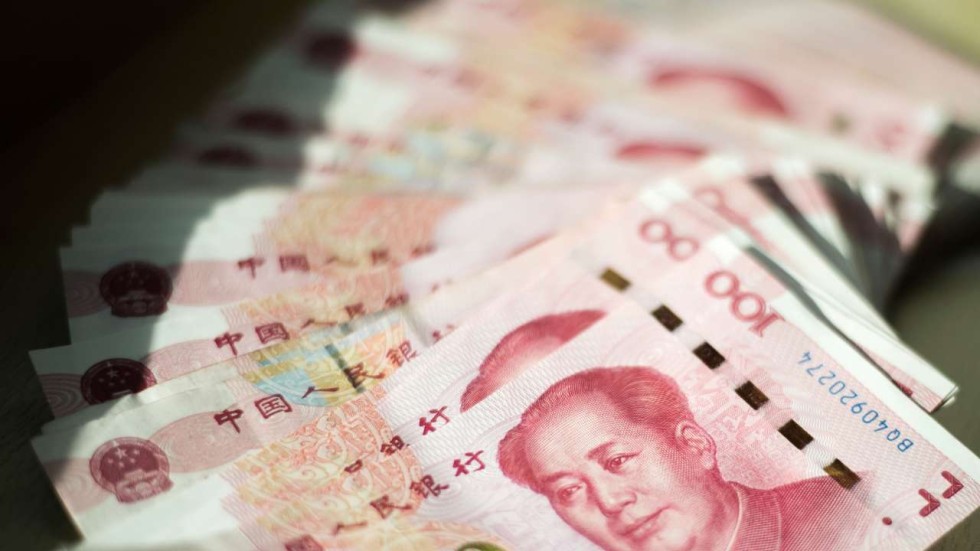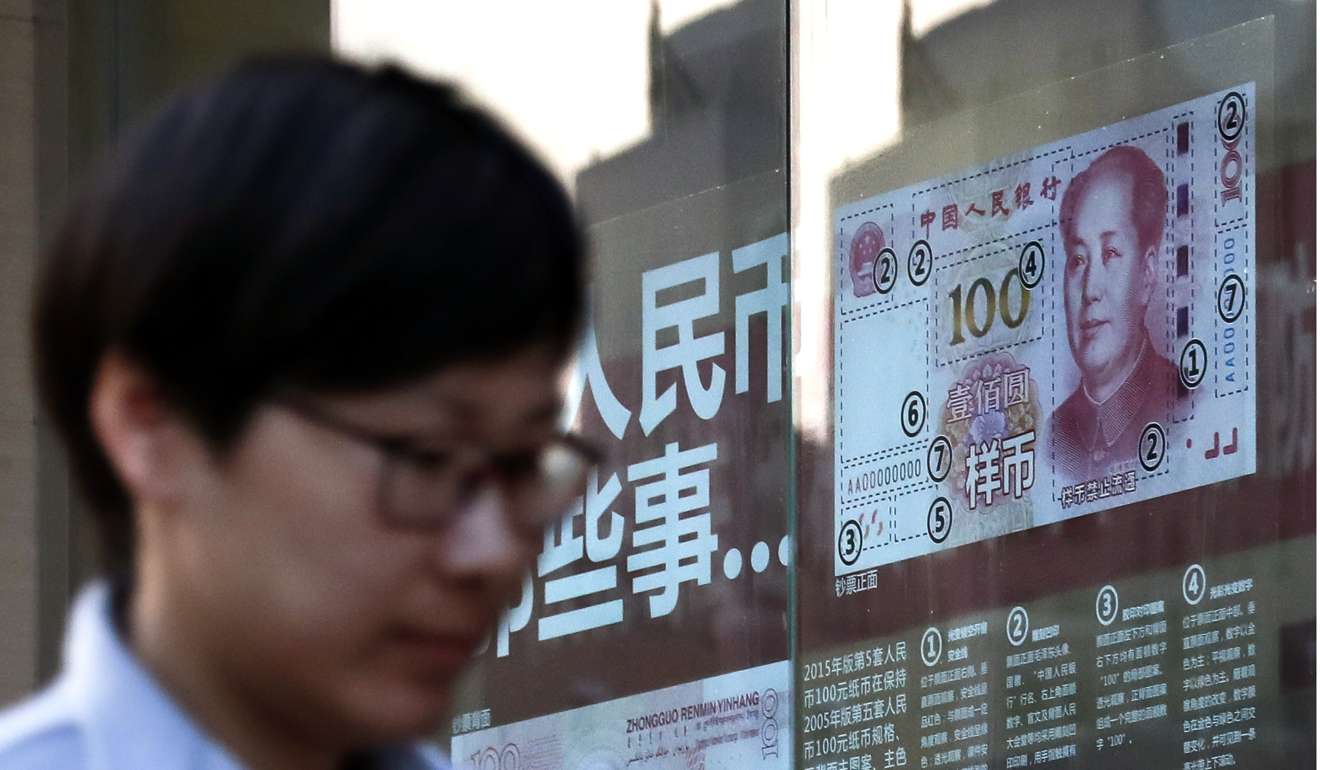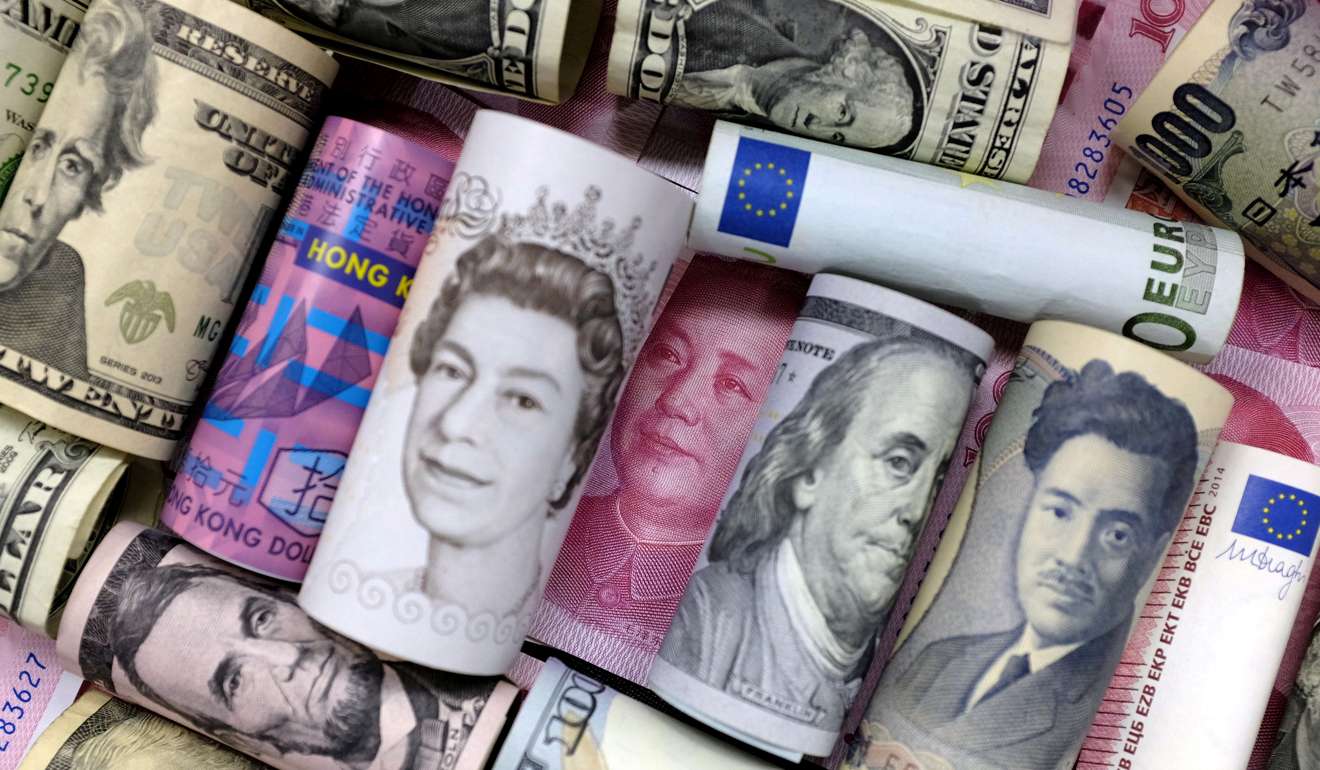China signals change of course on long-standing yuan policy
The renminbi exchange rate will be further liberalised, and the currency’s stable position in the global monetary system will be maintained, insists Premier Li Keqiang


Wendy Wu
China has changed its long-standing rhetoric on its yuan policy, signalling Beijing may alter its course on exchange rates this year under pressure from US Federal Reserve rate rises and US President Donald Trump’s threats of a trade war.
For the first time in an annual government report, the central government included the requirement to ensure the stable global status of the yuan as one of its major tasks, dropping the line “keeping a stable yuan at a reasonable and balanced level” that has been including in report for the past three years.
“The renminbi exchange rate will be further liberalised, and the currency’s stable position in the global monetary system will be maintained,” according to the government work report read out by Premier Li Keqiang at the National People’s Congress on Sunday.
China should let yuan fall, says the latest economist to join call for central bank to change tack
The new wording may indicate that Beijing will be more tolerant of yuan exchange rate moves against the dollar and gradually reduce its intervention in the foreign exchange market this year.
The Chinese currency is losing its appeal for investors, even though it had obtained a nominal reserve currency status from the International Monetary Fund, thanks to the Chinese government’s tightened capital account controls and the prospects of weakening against the US dollar, analysts said.
“The capital controls will hurt the yuan’s status and reputation,” said Shen Jianguang, chief economist with Mizuho Securities Asia. “In the past two years, the status of the yuan as an international settlement and valuation currency, as well as the scale of the yuan’s fund pool offshore, have fallen.”

Beijing’s efforts to make the yuan an international currency were largely shelved in the past year. In Hong Kong, the primary offshore yuan market, yuan deposits at the end of 2016 dropped 46 per cent from a peak in December 2014.
The value of international payments in yuan, released by payments processor Swift on Thursday, fell 29.5 per cent in 2016, while the yuan’s share in international payments dropped by 0.63 percentage points to 1.68 per cent at the year’s end.
China still fighting an uphill battle to stabilise renminbi
The costs for Beijing to defend a “stable” yuan exchange rate are getting dearer after China burnt US$1 trillion of its foreign exchange reserves in the last 21/2€ years to bolster the yuan’s value.
A group of domestic government researchers, including former central bank adviser Yu Yongding, have been publicly calling the government to change course over the yuan policy to permit yuan depreciation when the market wants the yuan to weaken.
“Trump is threatening China as a currency manipulator, and we can’t give him evidence [for such allegations],” Yu told journalists on the sidelines of the Chinese People’s Political Consultative Conference.
The year will be particularly challenging for Beijing with the top power reshuffle later this year and the Chinese leadership wants nothing but stability. The likelihood of intensive interest rate increases by the Federal Reserve and Trump’s constant threats against Chinese trade have added additional uncertainties.

At the same time, the process of Britain’s departure from the European Union and possible “black swan” election results in Holland, France and Germany are making China’s old yuan policy increasingly unsustainable.
The US dollar is very likely to rise following Fed’s rises and that “will put a lot of pressure on the yuan throughout 2017”, said Christopher Balding, a professor at Peking University HSBC Business School in Shenzhen.
China would ‘never’ launch currency war, says central bank vice-governor
Balding said that the yuan’s exchange rate had become “more dependent on the US dollar than a couple of years ago” and the Chinese central bank needed to manage the interest rate differentials between China and the US carefully to avoid capital flight.
Pan Gongsheng, head of the State Administration of Foreign Exchange said ahead of the opening ceremony of the NPC that short-term factors would disturb the foreign exchange markets, but the yuan’s value will be eventually determined by fundamental factors such as sound economic growth domestically.
China signals change of course on yuan policy
The renminbi exchange rate will be further liberalised, and the currency’s stable position in the global monetary system will be maintained, insists Premier Li Keqiang


Wendy Wu
China has changed its long-standing rhetoric on its yuan policy, signalling Beijing may alter its course on exchange rates this year under pressure from US Federal Reserve rate rises and US President Donald Trump’s threats of a trade war.
For the first time in an annual government report, the central government included the requirement to ensure the stable global status of the yuan as one of its major tasks, dropping the line “keeping a stable yuan at a reasonable and balanced level” that has been including in report for the past three years.
“The renminbi exchange rate will be further liberalised, and the currency’s stable position in the global monetary system will be maintained,” according to the government work report read out by Premier Li Keqiang at the National People’s Congress on Sunday.
China should let yuan fall, says the latest economist to join call for central bank to change tack
The new wording may indicate that Beijing will be more tolerant of yuan exchange rate moves against the dollar and gradually reduce its intervention in the foreign exchange market this year.
The Chinese currency is losing its appeal for investors, even though it had obtained a nominal reserve currency status from the International Monetary Fund, thanks to the Chinese government’s tightened capital account controls and the prospects of weakening against the US dollar, analysts said.
“The capital controls will hurt the yuan’s status and reputation,” said Shen Jianguang, chief economist with Mizuho Securities Asia. “In the past two years, the status of the yuan as an international settlement and valuation currency, as well as the scale of the yuan’s fund pool offshore, have fallen.”

Beijing’s efforts to make the yuan an international currency were largely shelved in the past year. In Hong Kong, the primary offshore yuan market, yuan deposits at the end of 2016 dropped 46 per cent from a peak in December 2014.
The value of international payments in yuan, released by payments processor Swift on Thursday, fell 29.5 per cent in 2016, while the yuan’s share in international payments dropped by 0.63 percentage points to 1.68 per cent at the year’s end.
China still fighting an uphill battle to stabilise renminbi
The costs for Beijing to defend a “stable” yuan exchange rate are getting dearer after China burnt US$1 trillion of its foreign exchange reserves in the last 21/2€ years to bolster the yuan’s value.
A group of domestic government researchers, including former central bank adviser Yu Yongding, have been publicly calling the government to change course over the yuan policy to permit yuan depreciation when the market wants the yuan to weaken.
“Trump is threatening China as a currency manipulator, and we can’t give him evidence [for such allegations],” Yu told journalists on the sidelines of the Chinese People’s Political Consultative Conference.
The year will be particularly challenging for Beijing with the top power reshuffle later this year and the Chinese leadership wants nothing but stability. The likelihood of intensive interest rate increases by the Federal Reserve and Trump’s constant threats against Chinese trade have added additional uncertainties.

At the same time, the process of Britain’s departure from the European Union and possible “black swan” election results in Holland, France and Germany are making China’s old yuan policy increasingly unsustainable.
The US dollar is very likely to rise following Fed’s rises and that “will put a lot of pressure on the yuan throughout 2017”, said Christopher Balding, a professor at Peking University HSBC Business School in Shenzhen.
China would ‘never’ launch currency war, says central bank vice-governor
Balding said that the yuan’s exchange rate had become “more dependent on the US dollar than a couple of years ago” and the Chinese central bank needed to manage the interest rate differentials between China and the US carefully to avoid capital flight.
Pan Gongsheng, head of the State Administration of Foreign Exchange said ahead of the opening ceremony of the NPC that short-term factors would disturb the foreign exchange markets, but the yuan’s value will be eventually determined by fundamental factors such as sound economic growth domestically.
China signals change of course on yuan policy




